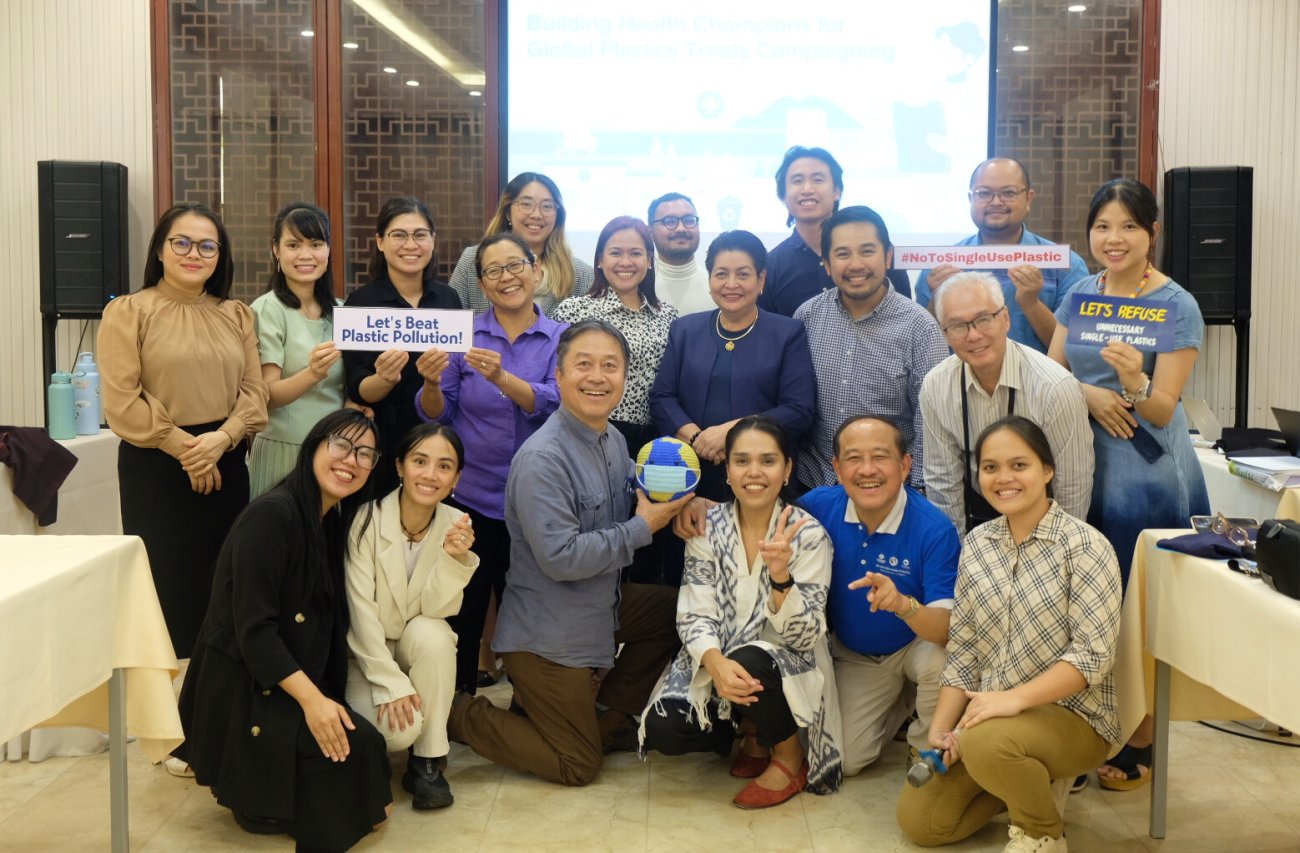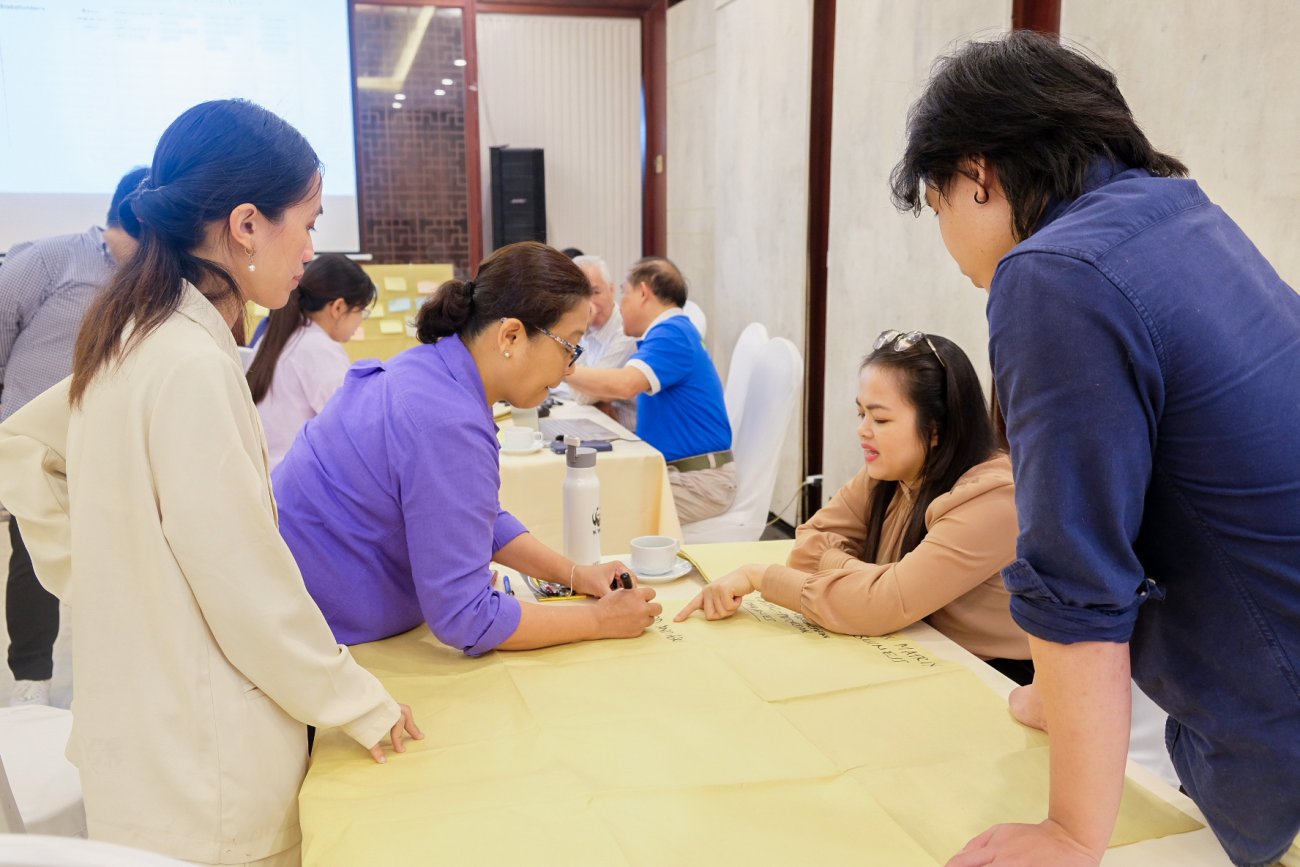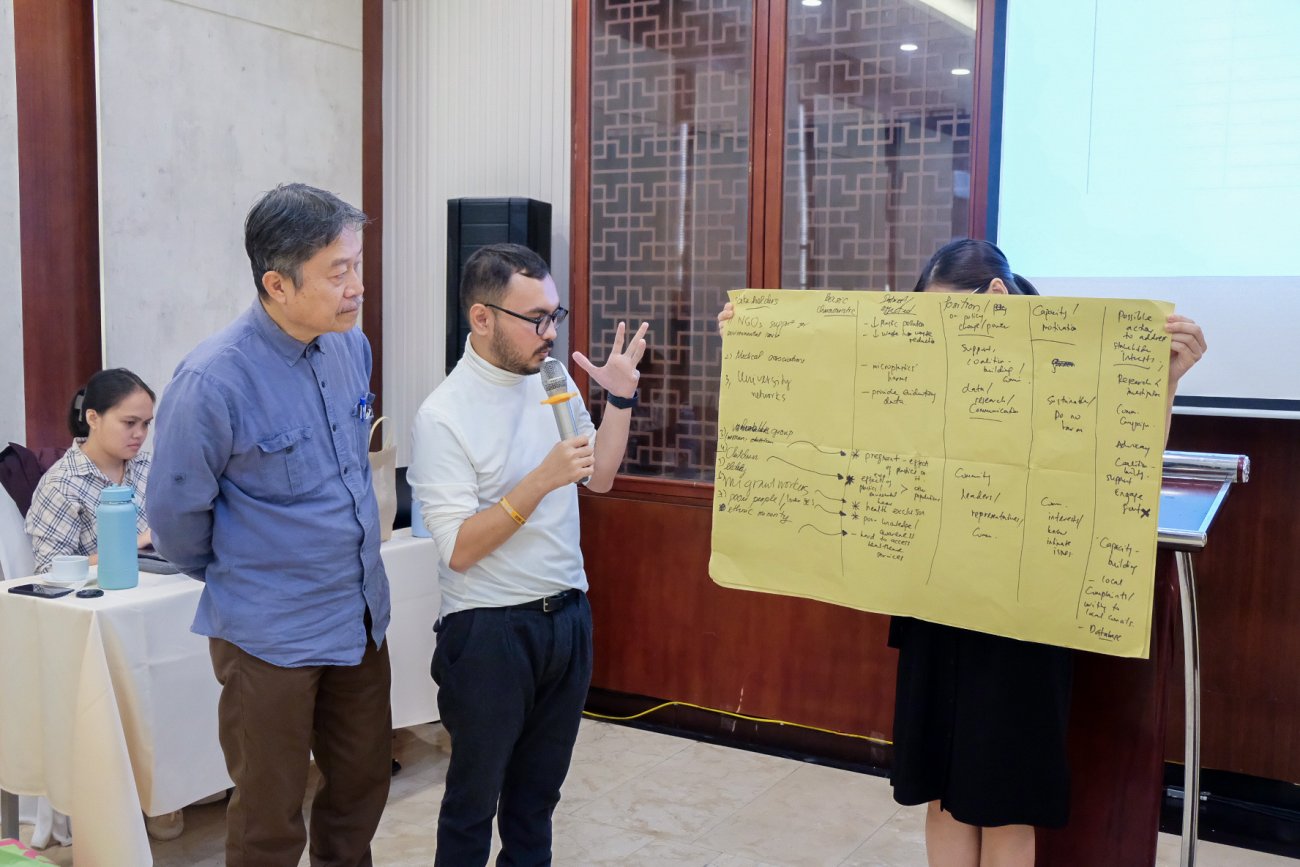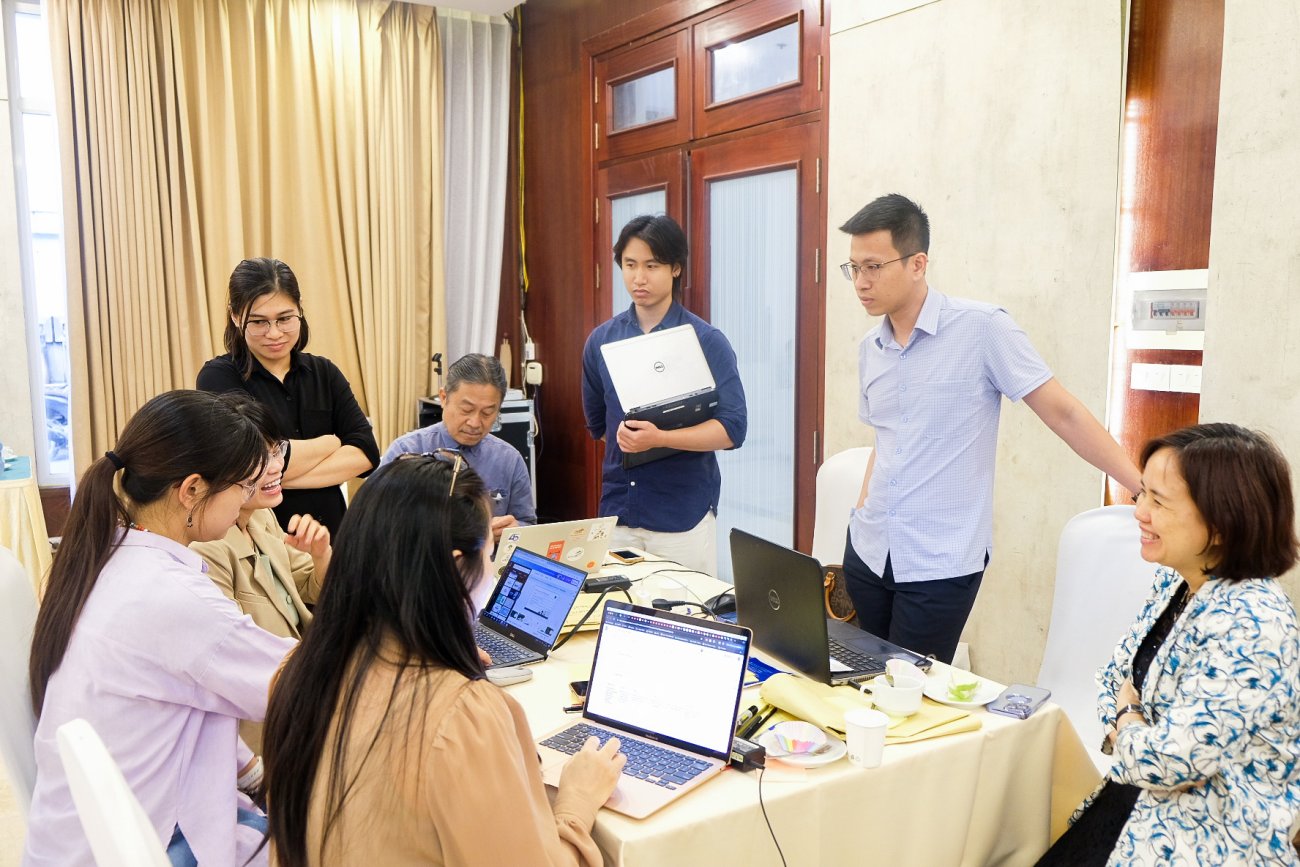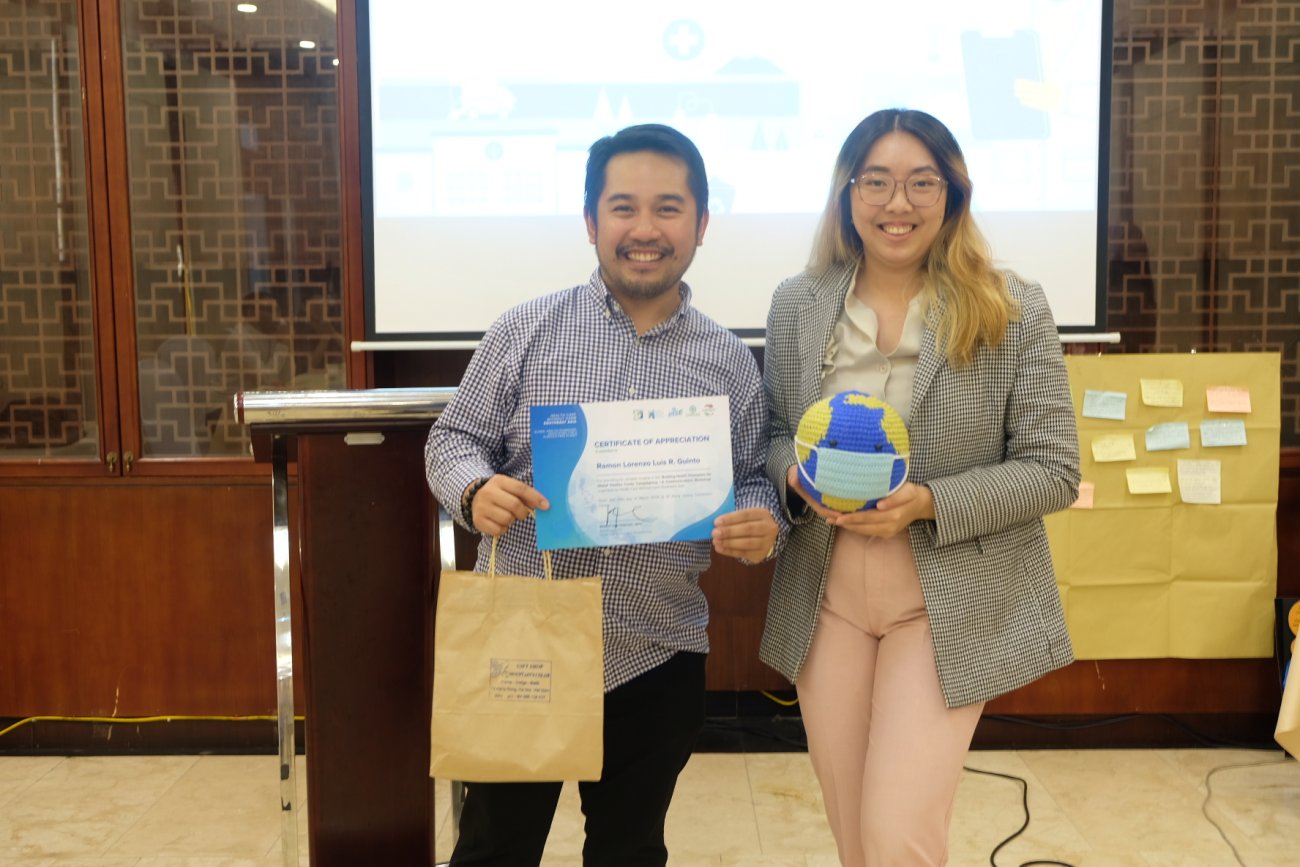FOR IMMEDIATE RELEASE | April 04, 2024
Health Care Without Harm Southeast Asia Calls for Just, Equitable Global Plastics Treaty, Convenes SEA's Sustainability Advocates
Participants and organizers of the "Building Health Champions for Global Plastics Treaty Campaigning" Workshop pose for a group photo after the two-day event.
“As health professionals who have taken an oath to the ethical principle to first do no harm, we are committed to health and well-being for all. Plastic poses an ongoing crisis for human and planetary health, which will inevitably worsen with the planned dramatic increase in plastics production, unless global action is taken.”
This is the opening statement of Health Care Without Harm’s (HCWH) Open Letter on the Global Plastics Treaty (GPT), a vital negotiation currently reaching its fruition.
In March 2022, the UN Environmental Assembly convened in Nairobi, Kenya, to address the global plastic crisis. In a historic moment, 175 nations voted to adopt a global treaty on plastic pollution during this gathering, agreeing to an accelerated timeline to have the treaty enacted by as early as 2025.
With the fourth Intergovernmental Negotiating Committee (INC-4) for the GPT on the horizon (scheduled for April 23-29, 2024 in Ottawa, Canada), HCWH Southeast Asia (HCWH SEA) recognizes the pressing need to expedite action to involve the healthcare sector in the region in this campaign. Hence, in alignment with our global counterpart and with the backing of the Plastics Solutions Fund, HCWH SEA is currently spearheading a pilot project aimed at empowering the sector to take the lead in advocating for a just and equitable plastics treaty. Titled ‘Global Health Guardians: Advocating for a Plastics-Free Planet - Building Health Champions in Detoxifying Healthcare,’ the project’s activities are designed all in the name of safeguarding and promoting health in the context of chemicals and plastics.
To inaugurate the implementation phase of this groundbreaking project, HCWH SEA recently concluded a two-day workshop titled 'Building Health Champions for Global Plastics Treaty Campaigning | A Communications Workshop' in Hanoi, Vietnam. Held on March 28-29, the event brought together key stakeholders from the region’s healthcare sector and environmental advocacy organizations to address the pressing issue of plastic pollution and its impact on public health.
Made possible in collaboration with esteemed partners in Vietnam including the Center for Health Environment Research and Development (CHERAD) and Zero Waste Vietnam, HCWH SEA, alongside its Global Green and Healthy Hospitals network and the RISE Southeast Asia Alliance for Health and Climate, spearheaded this first-of-its-kind initiative. The workshop's primary objective was to equip participants with essential communication skills for advocating health-centric policies within international sustainability negotiations, particularly concerning the Global Plastics Treaty.
Participants of the workshop represented a diverse group of medical doctors, healthcare professionals, and environmental sustainability advocates from across Southeast Asia's healthcare sector, particularly from Malaysia, the Philippines, and Vietnam. Selected through a call for participants process, individuals were evaluated based on their demonstrated leadership within the healthcare field, ongoing sustainability commitments and initiatives, and their potential to effectively advocate within international sustainability negotiations.
The workshop featured a diverse range of sessions led by experts in the field, including Neydi Cruz, International Sustainability Associate Director at HCWH, Shweta Narayan, Global Climate & Health Campaigner at HCWH, Ramon San Pascual, MPH, Executive Director at HCWH SEA, and Dr. Renzo Guinto, Associate Professor of Global and Planetary Health SingHealth Duke-NUS Global Health Institute Duke-NUS Medical School, National University of Singapore, and many others. Sessions covered topics such as plastic pollution and health, policymaking and the GPT, fundamentals of advocacy campaigning, advocacy stakeholder analysis, utilizing digital platforms for advocacy, and engaging traditional media and policymakers for advocacy.
Participants in action during the sessions of the two-day workshop.
Another highlight of the workshop was the interactive virtual panel discussion on 'engaging traditional media and policymakers for advocacy.' Esteemed speakers from organizations such as the Global Alliance for Incinerator Alternatives (GAIA) Asia Pacific, Break Free From Plastics (BFFP) Asia Pacific, Center for International Environmental Law (CIEL), Dietplastik Indonesia, Climate Tracker Asia, and ABS-CBN News Channel shared their insights and experiences, enriching the dialogue on effective advocacy strategies.
The two-day co-learning activity concluded with a dynamic workshop focused on 'advocacy planning,' during which participants were organized into country-specific groups. Their task was to craft advocacy plans tailored to their respective nations' needs. Despite the time constraints, all three groups delivered comprehensive action plans aimed at promoting health-centric policies within the framework of the Global Plastics Treaty (GPT). The reporting session that followed underscored participants' commitment and enthusiasm to create a solid impact in their chosen field of planetary health advocacy.
Workshop participant, Dr. Erlidia F. Llamas-Clark, during a group presentation activity.
"It was a successful workshop! I am hopeful that HCWH SEA will continue to provide support and coordination within the Southeast Asian region and among country groupings. I aspire that sustainability, far from being merely an advocacy, will be deeply embedded in our actions, especially as we advance our advocacy plan within the framework of the Global Plastics Treaty."
- Dr. Erlidia F. Llamas-Clark, a professor and attending consultant at the University of the Philippines’ College of Medicine, Department of Obstetrics and Gynecology and Philippine National Institutes of Health - Institute of Child Health and Human Development.
HCWH SEA is looking forward to the next phase following the workshop. Although it served as a pilot initiative, the team is enthusiastic about the prospect of continuing to collaborate with the group of Southeast Asian health champions who convened in Hanoi.
"We are thrilled by the enthusiasm demonstrated by all participants throughout the workshop. The event marked the beginning of a collaborative journey toward building a healthier and more sustainable future for our planet. We look forward to seeing the impact of our collective efforts in advocating for positive change within the Global Plastics Treaty."
- Dr. Michelle Reyes, Sustainability Officer at HCWH SEA.
As of writing and less than two weeks before INC-4, HCWH’s Open Letter has gained more than 600 signatories from healthcare practitioners, organizations, and institutions. At its core, the letter urges delegates to commit to a just and equitable Treaty that respects human rights, limits the production of plastics, eliminates unnecessary plastics products including single-use plastic, prioritizes detoxification, and ensures transparency of plastic products and materials. The call emphasizes the need for actions throughout the full life cycle of plastics in order to fully eliminate the harmful effects of production, use, recycling, and disposal of plastics and to protect human and planetary health.
Dr. Michelle Reyes, Sustainability Officer at HCWH SEA (R), presents a certificate and token of appreciation to Dr. Renzo Gunito, Associate Professor of Global and Planetary Health SingHealth Duke-NUS Global Health Institute Duke-NUS Medical School, National University of Singapore (L) for being one of the resource persons during the workshop.
Authored by: Donna Mae Ocmeja, Communications Manager, HCWH SEA
